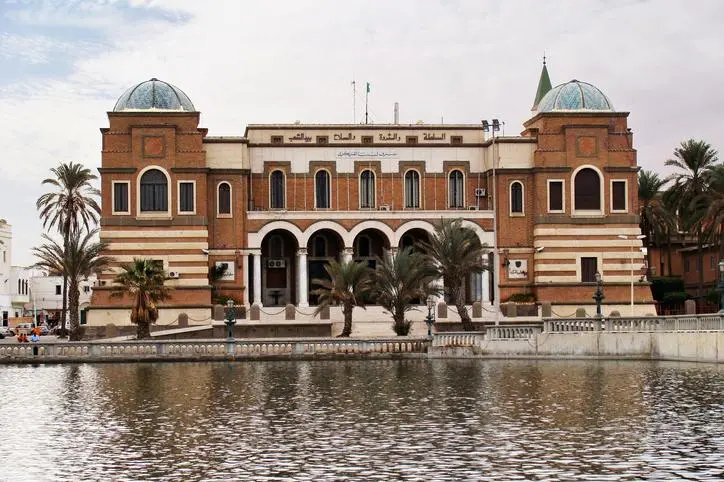PHOTO
TRIPOLI- The Central Bank of Libya board agreed to a devalued exchange rate across the country of 4.48 dinars to the dollar from Jan. 3, it said on Wednesday, a move welcomed by some business leaders.
The board was holding a full meeting for the first time in five years, after dividing as Libya split between warring western and eastern factions leading to different exchange rates across the country.
Unifying both the Central Bank of Libya (CBL) and the exchange rate are key goals of the economic track in the United Nations peacemaking process in Libya.
Tim Eaton, a Libya expert at Chatham House, said the fact the board had met for the first time in years could also open the door to further economic reforms that required CBL approval.
"The new rate will boost the economy and increase the effective purchase power of the Libyan dinar," said Husni Bey, a prominent businessman and owner of HB group.
"What matters most to us now in the private sector is the continuation and stability of prices. Any sudden change within a short period of time may affect the prices in the market," said Mohamed al-Ghzouti, an electronics shop owner in Tripoli.
CBL is based in the Libyan capital, seat of the internationally recognised Government of National Accord (GNA). The eastern branch is based in Benghazi, home of commander Khalifa Haftar's Libyan National Army (LNA).
In territory controlled by the GNA, the CBL has an official exchange rate of $1=1.34 dinars. The black market rate in western areas was $1=5.35 dinars on Wednesday.
In 2018, the GNA imposed a fee of 183% on hard currency transactions, effectively devaluing the dinar at the official rate to $1=3.90 dinars, to bridge part of the gap to the black market rate.
As the Tripoli CBL has an effective monopoly on foreign exchange transactions, the eastern authorities had to conduct business at the higher rate, while the GNA was exempt from the fee. In the east, the black market rate on Wednesday was $1=5.45 dinars.
The gap between the official and black market rates distorted Libya's oil-dependent economy, aggravating a liquidity crisis and causing corruption as armed groups with access to dollars at official rates made money from import scams.
(Reporting by Reuters Libya newsroom; Writing by Angus McDowall; Editing by Louise Heavens and Alex Richardson) ((angus.mcdowall@thomsonreuters.com; Reuters Messaging: angus.mcdowall.thomsonreuters.com@reuters.net))





















